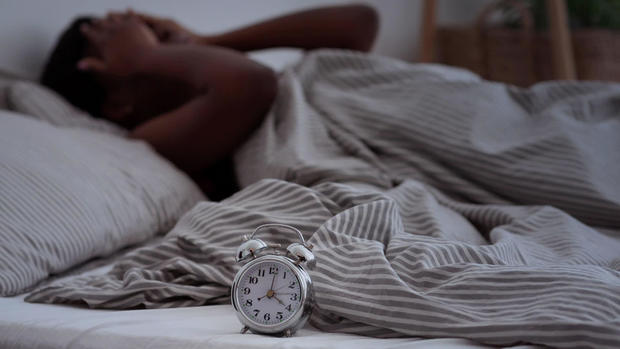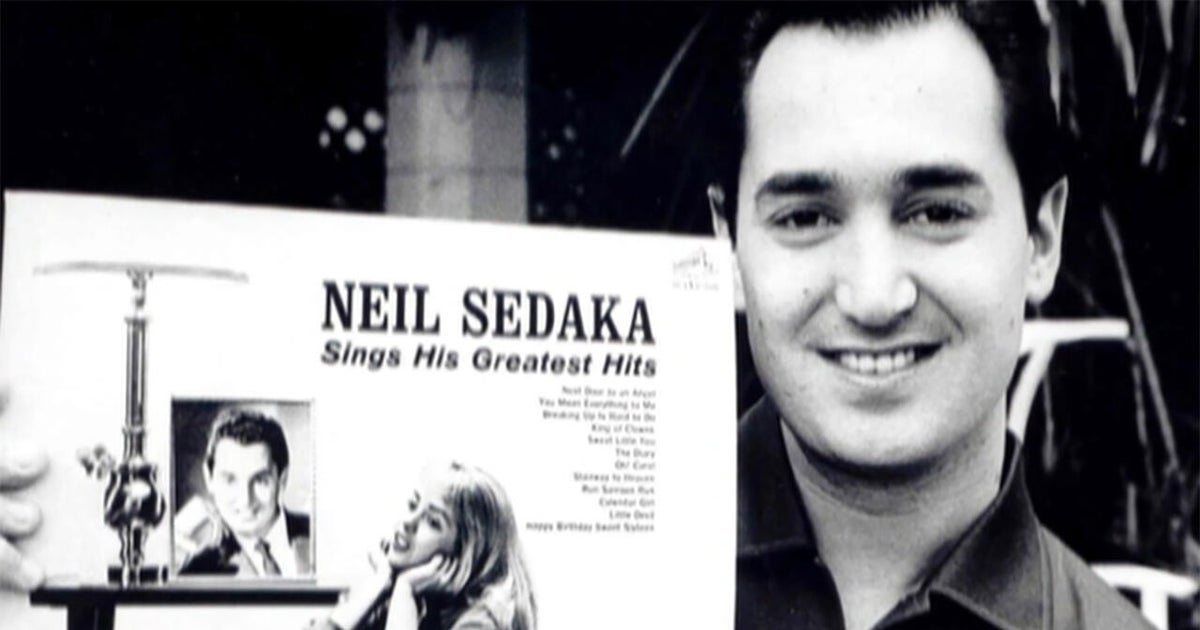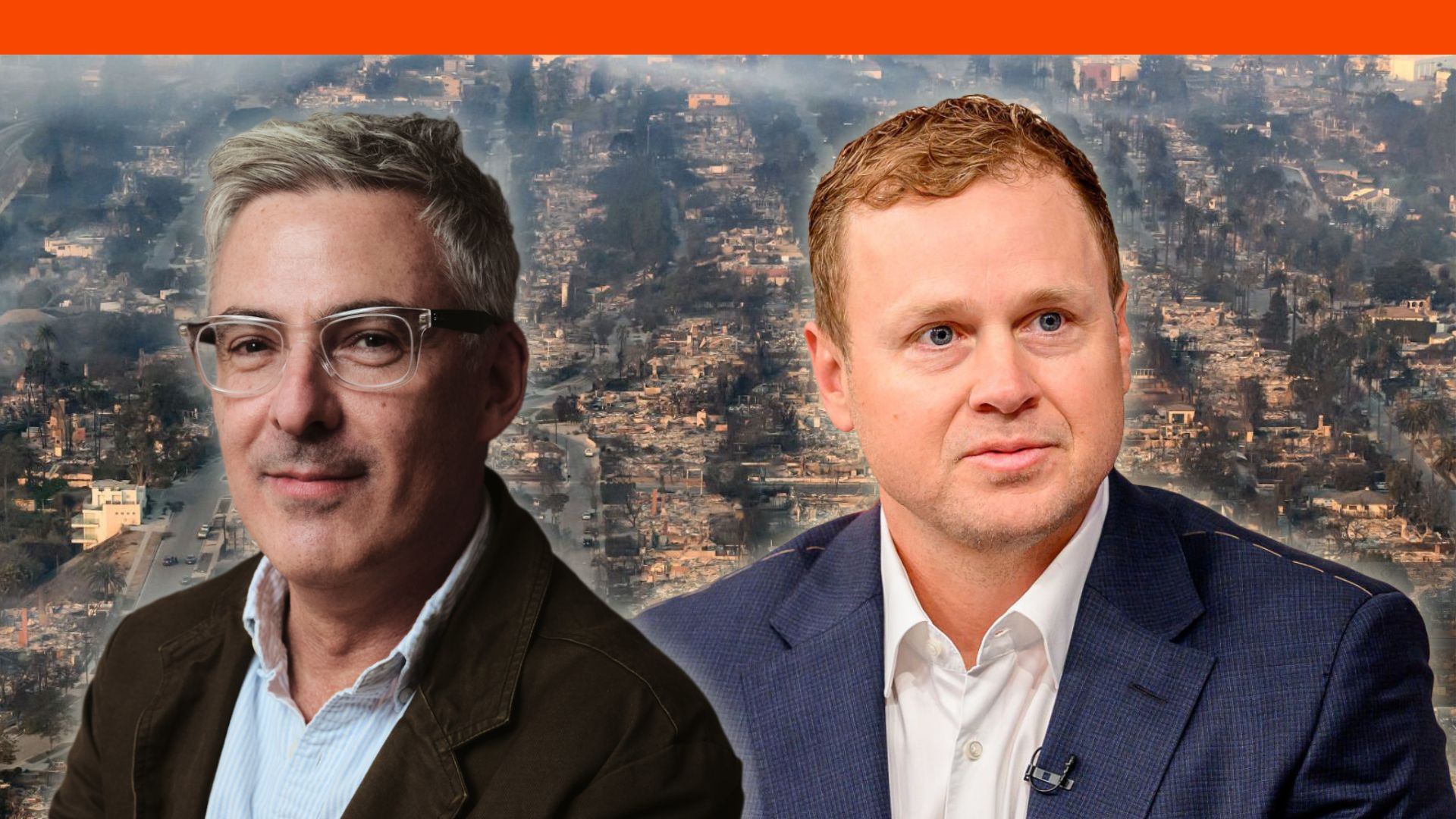Is a good night's sleep a far-fetched dream?
California podcaster Drew Ackerman has lost a lot of sleep, worrying about losing a lot of sleep.
His troubles with insomnia, he said, started when he was in fifth and sixth grade: "I would spend all night worrying," he told correspondent Susan Spencer. "What's wrong with me that I can't fall sleep? Why can't I just turn my brain off and fall asleep?"
It's a question that, years later, he still can't answer. "The night goes on and on and on and on, and it drags," Ackerman said. "And then you're there alone with your thoughts."
So, in 2013 Ackerman decided to share those thoughts and perhaps help fellow insomniacs, with a podcast he calls "Sleep with Me."
In dulcet tones, he tucks in the sleep-deprived, inching toward Dreamland with long, rambling monologues signifying … nothing.
Spencer said, "These are not stories in the sense that they have a beginning, a middle and an end, right?"
Ackerman replied. "There are stories that have a middle, beginning, and an end. But the middle part is so tangential that most listeners never get to the end!"
But with a whopping three million downloads a month, "Sleep with Me" is a sleeper hit – no surprise to professor Sharon Bowman, chair of counseling psychology at Ball State University in Muncie, Indiana.
Spencer asked her for the definition of "insomnia."
"Insomnia is being unable to either go to sleep easily or to remain asleep for a significant period of time," said Bowman, who advises clients and students on their sleep.
"Someone told me yesterday she went to bed at 11:00, she fell asleep at 5:00 a.m."
And the pandemic has only made things worse; according to the American Academy of Sleep Medicine, one in three American adults says it has affected their sleep quality.
"I think this is being referred to as 'coronasomnia'?" asked Spencer.
"Yes," Bowman said. "I think there's so many stressors and worries right now, it is much harder for people to do the sleep hygiene that they need to do."
"Sleep hygiene" is just a fancy way of saying keep a bedtime routine, and stay away from electronics at night. If only Professor Bowman herself could follow that advice …
"I will fall asleep reading or watching television, probably around 9:30, 10 o'clock," she said. "I'll wake up around 11:30. It's that move from chair to bed that becomes difficult. Once I get up and go to bed, I'm wide awake again."
Which may be why she's known for sending emails at 3 a.m.
Spencer asked, "The fact that you, as a psychologist, and somebody who counsels other people about insomnia, that you have these habits may speak to how intractable this is?"
"I think it does, I completely agree with you," Bowman replied.
Our 24-hour culture is keeping us up, said UCLA professor Jennifer Martin, a spokesperson for the American Academy of Sleep Medicine. "We live in a society that makes money by keeping people awake," she said. "There's a reason why streaming video doesn't just shut off at the end of the episode. It just goes on to the next one, right? You know, some streaming video executives have famously said that they're in competition with sleep."
"Yeah, and they're winning!" laughed Spencer.
Also competing with sleep: A warped work ethic.
"Thomas Edison said, 'Sleep is a criminal waste of time,'" Martin said. "I think that this has almost become a badge of honor."
And then there's this weekend's pesky spring ritual of pushing the clock ahead. "Daylight Saving should be a thing of the past," Martin said. "When we change the time in the spring and people lose an hour of sleep, there are more car accidents after that."
When asked about the cumulative impact of not getting enough sleep, Fordham University psychology professor Tiffany Yip said, "We see chronic sleep deprivation linked to things like cardiovascular disease, cancer, obesity, you know, a whole host of health disparities that sort of fall along the same lines that we're seeing for sleep disparities."
It's even worse for African-Americans, said Yip, who studies racial sleep discrepancies. "Quite consistently, Black Americans are sleeping less than any other racial ethnic group," she said.
Spencer asked, "How big are these disparities?"
"We found an hour difference," Yip replied. "So, Black Americans are sleeping an hour less than Asian, LatinX, Indigenous and White individuals." That's an entire night's sleep lost every week.
Professor Yip puts some of the blame on the stress of racism. When asked how discrimination plays into insomnia, she said, "Discrimination is a form of stress. And we know that stress sort of starts psychophysiologic processes in the body. It could mean things like tossing and turning when you're trying to fall asleep, playing an event over and over in your head. So, it's just another example of where we're seeing communities of color dealing with more challenges."
One challenge for ALL of us is knowing when to see a therapist. Martin said. "If it goes on for longer than three months, that's a pretty good indication that you should reach out for some professional help."
In the meantime, there's always Drew Ackerman's podcast.
Spencer asked him, "How do you react when people say, 'Drew, I listened to this and, well, it was really, really boring'?"
"I, like, love the word boring!" he laughed. "That's, like, the best word to describe what I'm trying to achieve."
"Well, you've succeeded beyond your wildest dreams," Spencer laughed.
"Yeah! I've taken my natural skill at being dull and being too interested in details and, kind of weaponized it in a positive way!"
Truly, something to sleep on.
Ackerman said, "If I can help that one person fall asleep and their day is better tomorrow, I mean, it doesn't get better than that for me!"
For more info:
- "Sleep With Me" with Drew Ackerman (podcast)
- "Sleepy" (podcast)
- Sharon Bowman, chairperson, Department of Counseling Psychology, Social Psychology, and Counseling, Ball State University, Muncie, Indiana.
- American Academy of Sleep Medicine
- Jennifer Martin, American Academy of Sleep Medicine
- Tiffany Yip, chairperson, department of psychology, Fordham University, New York City
Story produced by Amiel Weisfogel. Editor: Carol Ross.
See also:
- Trying to put insomnia problems to rest ("Sunday Morning")




